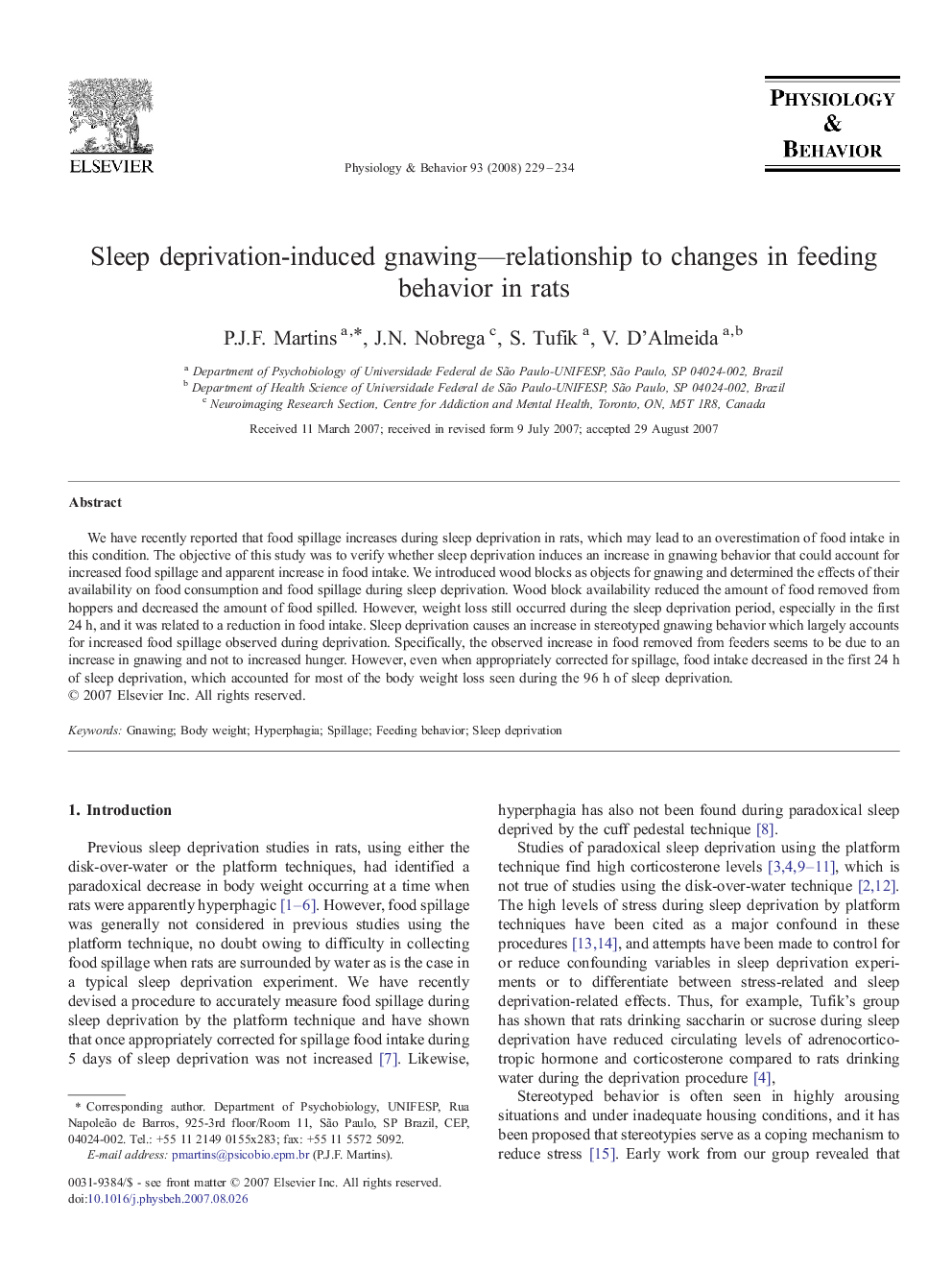| Article ID | Journal | Published Year | Pages | File Type |
|---|---|---|---|---|
| 2845622 | Physiology & Behavior | 2008 | 6 Pages |
We have recently reported that food spillage increases during sleep deprivation in rats, which may lead to an overestimation of food intake in this condition. The objective of this study was to verify whether sleep deprivation induces an increase in gnawing behavior that could account for increased food spillage and apparent increase in food intake. We introduced wood blocks as objects for gnawing and determined the effects of their availability on food consumption and food spillage during sleep deprivation. Wood block availability reduced the amount of food removed from hoppers and decreased the amount of food spilled. However, weight loss still occurred during the sleep deprivation period, especially in the first 24 h, and it was related to a reduction in food intake. Sleep deprivation causes an increase in stereotyped gnawing behavior which largely accounts for increased food spillage observed during deprivation. Specifically, the observed increase in food removed from feeders seems to be due to an increase in gnawing and not to increased hunger. However, even when appropriately corrected for spillage, food intake decreased in the first 24 h of sleep deprivation, which accounted for most of the body weight loss seen during the 96 h of sleep deprivation.
